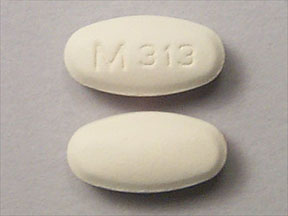
Tolectin 600 Coupons & Savings Card – Discount Prices from $186.58
Brand for: Tolmetin
My prescription
Edit
600MG, Tolmetin (90 Tablets)
Select pharmacy

CVS
$186.58
COUPON PRICE
Walmart
$290.47
COUPON PRICE
Walgreens
$301.46
COUPON PRICE
Albertsons
$315.17
COUPON PRICETolectin 600 savings card
Show this card to your pharmacist
CVS
$186.58
BIN
ID
PCN
GRP
019876
LH7C34B518
CHIPPO
LHX
Powered by
More prescriptions for rheumatoid arthritis
More prescriptions for rheumatoid arthritis
Price history for Tolectin 600 (brand) & Tolmetin (generic)
90 Tablets, 600MG
Average retail price for Tolectin 600
Average retail price for Tolmetin
Average SaveHealth price for Tolmetin
Our price history data is based on aggregated prescription data collected from participating pharmacies in America. Our prescription data updates daily to reflect the latest price changes. If you notice a missing data point, it means there wasn't sufficient data available to generate a monetary value for that date.
Over the last 12 months, the average discount price of Tolectin 600 is $294.01 using the SaveHealth savings card. That's an average savings of 76.24% on Tolectin 600 with our discount card.
*Retail prices are based on pharmacy claims data, and may not be accurate when we don't have enough claims.
Tolectin 600 (Tolmetin) dosage forms
Dosage Quantity Price from Per unit 600MG 90 Tablets $186.58 $2.07 600MG 30 Tablets $74.39 $2.48
| Dosage | Quantity | Price from | Per unit |
|---|---|---|---|
| 600MG | 90 Tablets | $186.58 | $2.07 |
| 600MG | 30 Tablets | $74.39 | $2.48 |
What is Tolectin used for?
Tolectin is used to relieve pain and inflammation associated with conditions such as rheumatoid arthritis, osteoarthritis, and juvenile rheumatoid arthritis.
Is Tolectin still available?
Tolectin, which is a brand name for the drug tolmetin, is no longer available in the United States. However, tolmetin may still be available in generic form. It is important for patients to consult with their healthcare provider for alternatives or equivalent medications.
Is the Tolmetin Tolectin brand discontinued?
Yes, the Tolectin brand of tolmetin has been discontinued. However, tolmetin may still be available in generic forms. It is advisable to consult with a healthcare provider for alternatives or further information.
